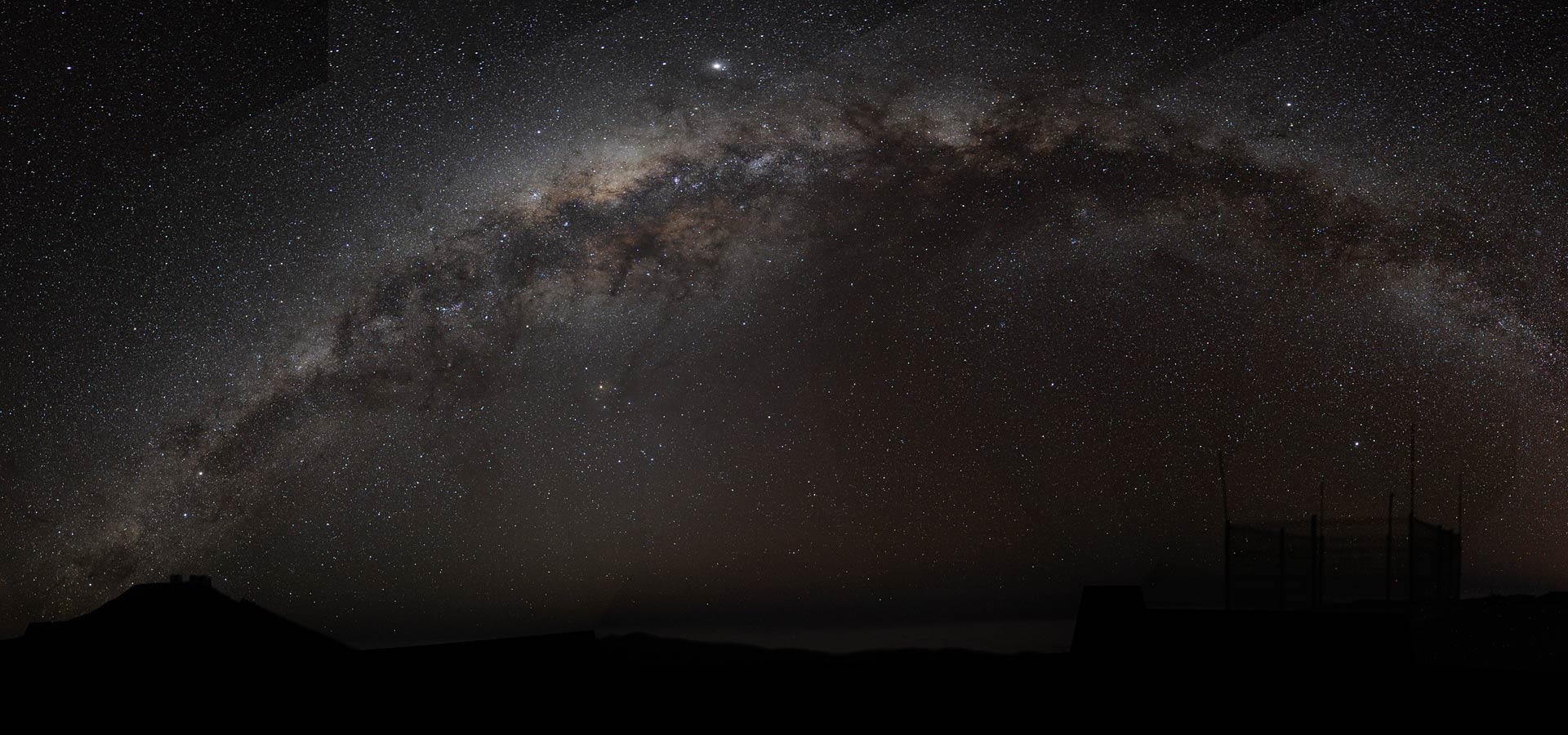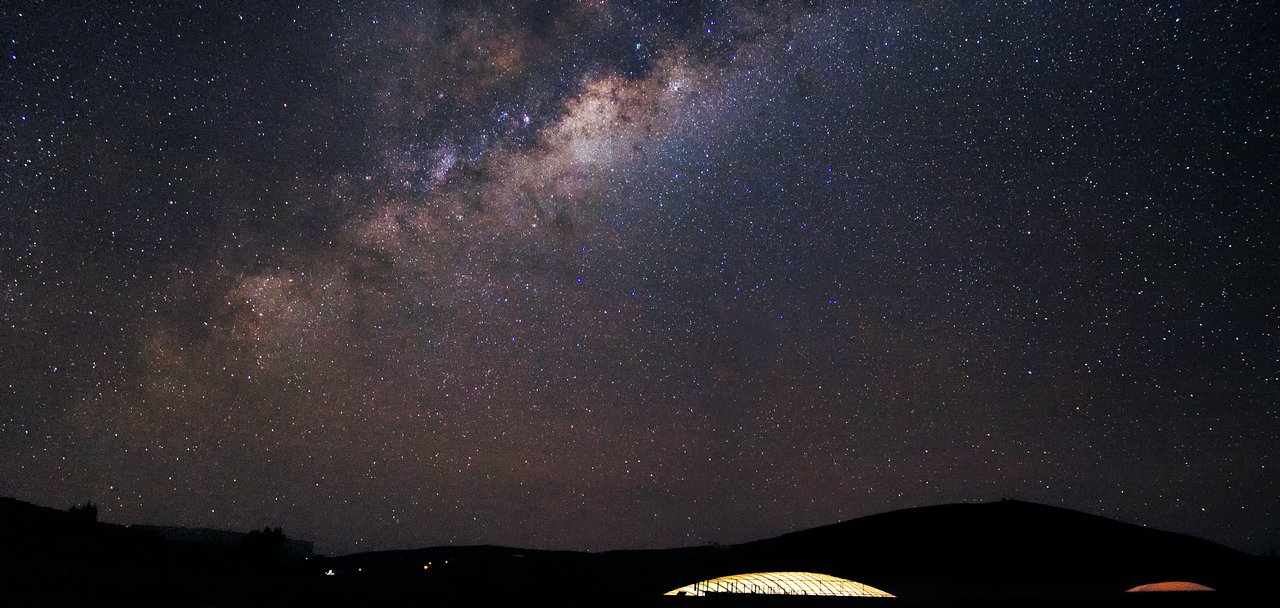
Concealing the Cosmos
Why light pollution makes it difficult for astronomers to observe on location
- What light pollution is and why it poses a problem for astronomers
- Why this astronomer has never used a telescope on a location to collect information about the Universe
- What can be done to combat light pollution
The main justification for my lack of interaction with telescopes is the extraordinary amount of time, money and resources it takes to physically reach them. The inconvenient placement of modern telescopes is no accident. It is entirely deliberate, and serves the purpose of getting the telescopes as far away from human habitation as possible. ESO’s telescopes are located deep in the Chilean Atacama desert, with Paranal Observatory (the home of the Very Large Telescope) located 130 km from the nearest city of Antofagasta. This is because where human beings are, light pollution follows.
It’s strange to think of light as a pollutant. Our days are naturally filled with it, and our nights are made infinitely easier by its presence. Nonetheless, the relatively unchecked growth of humanity’s dwellings, infrastructure and technology has resulted in our night skies being flooded with excess light, both within and outside the visible range that human eyes are sensitive to. It is difficult for someone who was raised in a town or city to appreciate the impact of light pollution on our skies. It was not until a few years ago that I realised that, from the lonely isolation of the Chilean desert, the sky appears to be literally ripped apart by the spillage of the billions of stars that comprise our Milky Way.
So what is the difference between light, and light pollution? An apt analogy is any other kind of waste product or pollutant. For example: a disposable coffee cup. The cup is only intended to hold coffee, not to be scattered on streets and contribute to landfills. But because we did not care to invent anything better, or reduce our intake of coffee, the disposable cups pile up and up until they start to affect our environment. The same is true for light pollution. Devices intended to light our homes, offices and streets spill surplus light, as waste, in unnecessary directions. This light scatters off the molecules and particles in our atmosphere, and infuses the night sky with a strange, dull glow. It is not intentional, but through poor design, excess use of artificial light and a general lack of care, humans have completely changed the night sky environment.
This glowing means that the stars and planets in the night sky are no longer the sole source of photons (light particles). The excess light falls into telescopes and onto our eyes indiscriminately, greatly or entirely blocking out the visually stunning, and far more interesting light sources.
But whilst this pollution is infuriating for astronomers, who have to resort to locating telescopes deep in the desert; high up mountains; or at the very poles of the Earth, is it anything more than an inconvenience for a handful of people? Sadly, yes. The impact of light pollution extends far beyond the loss of a readily available beautiful sky. The rhythm that our bodies naturally go through everyday is profoundly confused by artificial light at times we would naturally be sleeping. Light pollution has been correlated with insomnia, increased stress and issues regulating hormones.
The effects extend far beyond the human race. The vast majority of evolutionary history has taken place without the influence of artificial light. Light pollution extending beyond the range that humans can see impacts insects, birds and animals, disorientating them and affecting entire ecosystems.
If a dark night sky is of such importance, not just for the well-being and pleasure of humans, but of entire species of other living creatures, then what is being done to preserve them? Fortunately many organisations exist to combat the spread of light pollution. It is of course in ESO’s keenest interest to preserve our dark skies, and it works in collaboration with many of these initiatives.
Certain areas of the world are already protected dark sky sanctuaries, including a small part of the Atacama Desert. People who want to make a difference on a more personal or local level have plenty of possibilities; to begin with, minimising light at night as much as possible. When unavoidable, it can be kept muted, and shaded from the sky with curtains or by capping the tops of lamps. In addition, as we see from the blue colour of the sky during the day, our atmosphere optimally scatters blue light. Whilst this is idyllic during our waking hours, at night, keep artificial lighting as reddish or yellowish as possible, to minimise scatter. If local government and individuals all start to implement these small changes, it would help everyone to admire the beauty of the night sky.
In the meantime, from the perspective of astronomers, the long journey into the Atacama Desert is well worth it, giving us the opportunity to experience the extraordinary luxury of a sky relatively unaffected by mankind. Not only does it make truly stunning astrophotography possible, but it allows astronomers who observe using ESO telescope the chance to collect some of the most pristine data on Earth.
Biography Eleanor Spring
Eleanor is a former ESO science communication intern, who has continued her relationship with ESO as a freelancer, working as the Public Information Officer in charge of the ESO Pictures of the Week. She is currently living in Amsterdam and working on a PhD, developing techniques to characterise exoplanets, which provides the exciting opportunity to see another side of ESO — the use of data collected at their telescopes! She has also found other outlets for her love of communication: teaching yoga and (attempting) to learn Dutch and French.




